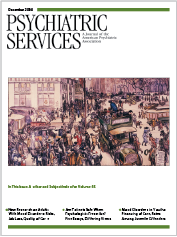Lost Boy Lost Girl is the latest novel of Peter Straub, an acclaimed best-selling author of horror fiction who is also known for writing a couple of books with Stephen King via computer. Interestingly, though, it seems that Straub usually writes his books in longhand with a pen, and this book even includes an acknowledgment of the pen's manufacturer.
His latest book is a story of two men. One is a writer, Timothy Underhill, who tries to discover the fate of his missing teenage nephew, Mark. Underhill, who lives in New York, returns to his hometown—the fictional Midwestern city of Millhaven—for the funeral of his sister-in-law, who committed suicide. He notices that his nephew is tense and preoccupied. Underhill soon realizes that Mark found his mother's body after her gruesome "triple" suicide: she overdosed, put a plastic bag over her head, and cut open both her forearms in the bathtub with a knife.
The story reads almost like a classic literary cliché so far—a stereotypical middle-class family, the husband obsessed with his status and career as vice-principal and a perspective of becoming a principal, a sensitive teenage boy who feels distant and alienated from his parents, and a hardworking wife and mother who gets "a little" depressed and cannot hold the family together anymore. Then, a few days after the funeral, the boy disappears, and his uncle is called to help find him. It turns out that for several days before his disappearance, the boy was obsessed with a mysterious neighborhood house. It appears that the house was once owned by his mother's cousin, a serial killer who died in prison years ago. It also turns out that recently several boys in the city of Millhaven disappeared without a trace. A new serial killer? Ghosts of the past? Suddenly, the tale becomes much more complicated and intertwines a murder mystery, a possible ghost-house tale, and a serial-killer tale. The last few pages tie almost everything together and explain all the mysteries. No matter how mundane and schematic it may seem, the conclusion is a bit haunting and unsettling.
There are probably several ways to read this book. Most readers will be seduced into reading it just as though it were just another horror or murder mystery. But I believe that Straub tried to write more than just an "ordinary" mystery. He skillfully examines middle-class American family relationships and the atmosphere of a Midwestern city—born in Milwaukee, Wisconsin, Straub seems to be quite familiar with such cities. He also examines the impact of suicide and a haunted past on a family and especially on a teenage boy. Finally, he explores various ways of coping with a loss, imagination being one of them.
The book is enjoyable, entertaining, thoughtful, and thought-provoking bedtime reading.

